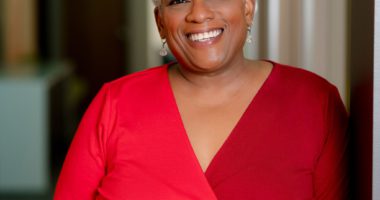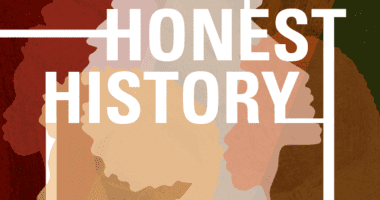‘Because Someone Did It for Me’
You can still see the stained watermark from the storm feet above eye level on the school walls. It was here, at a high school just off the highway that runs along the Gulf Coast between New Orleans and Gulfport, Mississippi, that I met Mr. King. I was there talking with students who had struggled in school, many splitting their time between the local high school and the alternative school down the road. Their stories of academic struggle and recovery were cast with dedicated educators who’d helped them along the way — the principal, teachers, counselors, and coaches. But in conversations with the young men who’d spent time at the alternative school, one name came up more than most. Mr. King.
After the fifth time his name came up, I knew I needed to meet this Mr. King and to hear what drives him in his work, particularly at the alternative school.
When I caught up with him later that afternoon and asked him about his work with struggling students, here’s what he had to say:
The alternative kids — they’re no different than any other kids. They just got caught (chuckles). Hard thing with them is that when they get caught, they bomb out. And they begin to get labeled, and they start to believe the labels.
You have to be real with them. Letting them know that they are not their mistakes. I say, “That’s not who you are. But your mistakes have given you a reputation that you have begun to believe. You have to get past this idea of ‘I am what I’ve done,’ into ‘I am what I can be.’” I try to help them in that transition.
With some, it’s not easy — because they’ve completely given up. And so they reject a lot at first. You have to just keep reminding yourself that they are worth working for.
Because every kid has something great to offer the world.
I do it because somebody did it for me.
I had six close friends growing up — a lot of them went to jail. There is no difference between me and them except that I had people to step in to help me. I’m not a better person because of anything I’ve done — it’s because of what people did for me. There are a lot of people in jail who are smarter than me, who have higher morals than me, who have a higher calling than me — but who just were absent of people who were there to say, “I love you. I care about you. And you can do it.”
I had people when I was growing up who said, ‘I see something in you.’ And they kept telling me that, to the point where college was not an option to me — it wasn’t ‘if,’ it was ‘when.’ And I feel like it would be a disgrace if I didn’t do the same for other guys.
I believe it was poured into me so I can pour it into someone else. I believe that’s how we’re all put into a position to do the work we’re called to do. We are saved out of horrible situations so we can help reach a hand out to somebody else. And so to be blessed to be in that situation, I want to reach as many kids as I can.
In education, we often talk about teaching as a calling. In a little town along the gulf coast of Mississippi, Mr. King answered that call.
Just like someone answered his.
This Teacher Appreciation week, The Education Trust honors the many teachers like Mr. King who have answered the call and every day, are making a real difference for young people — in their classrooms and beyond. (Read more about Mr. King in our Between the Echoes series.)











